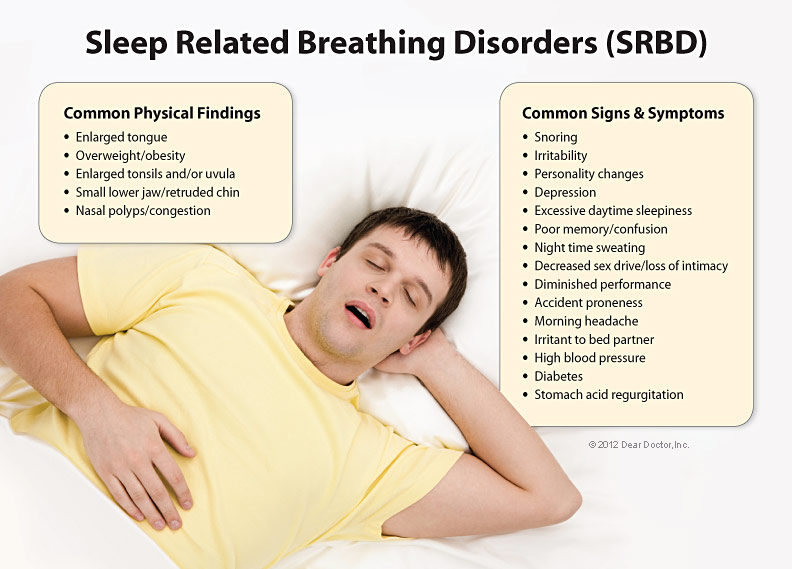 If you snore, you’ll doubtless have several reasons for wanting to stop, whether it’s your general health, your quality of sleep, or that of the person you share a bedroom with. Snoring has many negative impacts on health, not limited to disturbed sleep. Sleep deprivation can lead to weight gain, which in turn can increase snoring, in a vicious cycle.
Snoring can also increase blood pressure, and studies suggest that snoring (and the broken sleep it causes) can also reduce your libido and ability to maintain an erection.
Other research shows that snoring decreases the amount of restful sleep that both you and your partner get on an average night, leading to long-term sleep deprivation. This often leads to couples sleeping in separate rooms – but sometimes this isn’t even enough, if you snore like a chainsaw and can be heard from the next room!
So whether it’s flatmates or family complaining about interrupted sleep as a result of your snoring, it’s probably a source of embarrassment and tension for you, not to mention your own quality of sleep.
On the positive side, other studies have concluded that exercises that strengthen the tongue and throat muscles associated with snoring can reduce the volume and frequency of snoring quite dramatically.
Why is it that some people snore and some don’t?
When you go into deep sleep, the tongue and throat muscles relax and go floppy, which causes the soft tissues to ‘flap’ or vibrate as the air passes between them.
The unique shape of your nose, sinuses and skull can make you more or less susceptible to snoring.
Men are more likely to snore than women, because they tend to have narrower nasal cavities. Age is also a factor – generally, the older you get, the more your throat muscles lose their tone.
Alcohol tends to increase snoring, as do smoking and some medications. Your sleeping position can also have an effect. You’re more likely to snore on your back than if you’re lying on your side. A blocked nose or stuffy sinuses can increase snoring.
Most people snore occasionally, but the regular snorers are the ones at risk of health problems. According to WebMD, 75% of chronic snorers experience sleep apnoea – temporary obstruction of the airways, which means you can’t breathe for brief periods. Sleep apnoea can increase your risk of heart disease.
What can you do about snoring?
If you’re concerned about your snoring, you may have already tried some of the available treatments, such as sprays, mouth pieces, nostril widening devices, etc. There are various medications and gadgets you can buy, none of which work very effectively.
Other suggests we’ve seen, which may or may not help, include changing your pillows regularly (to avoid breathing in dust), a hot shower before bed, avoiding alcohol, losing weight, singing regularly, and general exercise (even if you don’t lose weight, fitness improves your breathing).
The good news is that there are simple exercises you can do at home, for just five minutes a day, that specifically strengthen the muscles in your mouth and throat and put an end to snoring.
Five minutes a day, and it’s free
Dr Mike Dilkes, co-author of the book ‘Stop Snoring The Easy Way: And The Real Reasons You Need To’, says the exercises can restore your throat muscles to their former tone. The book recommends spending five minutes each day doing the exercises, until your snoring stops. Do them as fast as you can, and if you get through them in less than five minutes, start again from the top.
Below are the nine exercises* described in detail. Once you have your snoring under control, do them every now and again (e.g. once a week) to maintain the muscle tone and stop you relapsing.
1. Extenders
Stick your tongue out straight as far as it will go. Try to touch the tip of your tongue to the end of your nose, and then your chin. Then move it to touch your left then right cheek. Repeat the four points quickly ten times.
2. Curls
Move the tip of your tongue backwards in your mouth, so it curls over towards the soft palate. Stretch it as far back as it will go, then bring it forward to touch the back of the upper teeth. Repeat quickly 15 times.
3. Hummers
Grip the tip of your tongue gently between your teeth. Make a humming sound, starting deep then increasing in frequency until it is as high pitched as you can make it. Repeat ten times.
4. Hippos
Open your mouth as widely as you can and say ‘ahhhhhhhh,’ for 20 seconds. Repeat once.
5. Snorters
With your mouth closed, breathe in sharply through the nose. You may snort a bit. Do this rapidly in four sets of five repetitions, with a five second break between each set.
6. Deep sniffs
With your tongue sticking out as far as it will go, take long, deep nasal breaths. Repeat 20 times.
7. Gulpers
Swallow ten times consecutively with your mouth closed, as forcefully as you can.
8. Pitchers
With your tongue poking out as far as it will go, take a deep breath in and make a high pitched noise, like air gargling. Continue for 30 seconds.
9. Boas
Swallow very slowly in a controlled manner, making it last five seconds. Hold as much pressure as possible in the throat throughout. Repeat five times.
“Many people will notice improvements even after the first night, but you’ll need to stick at it,” says Dr Dilkes. He says that for some people it may take up to three months of daily exercises to stop the snoring, but after that, just occasional repetitions to maintain your tone.
He has also developed several apps, such as Snorelab, which you can download and get the most basic functions for free. It allows you to monitor your snoring while you sleep and record your progress.
*As published in The Daily Mail.
|













